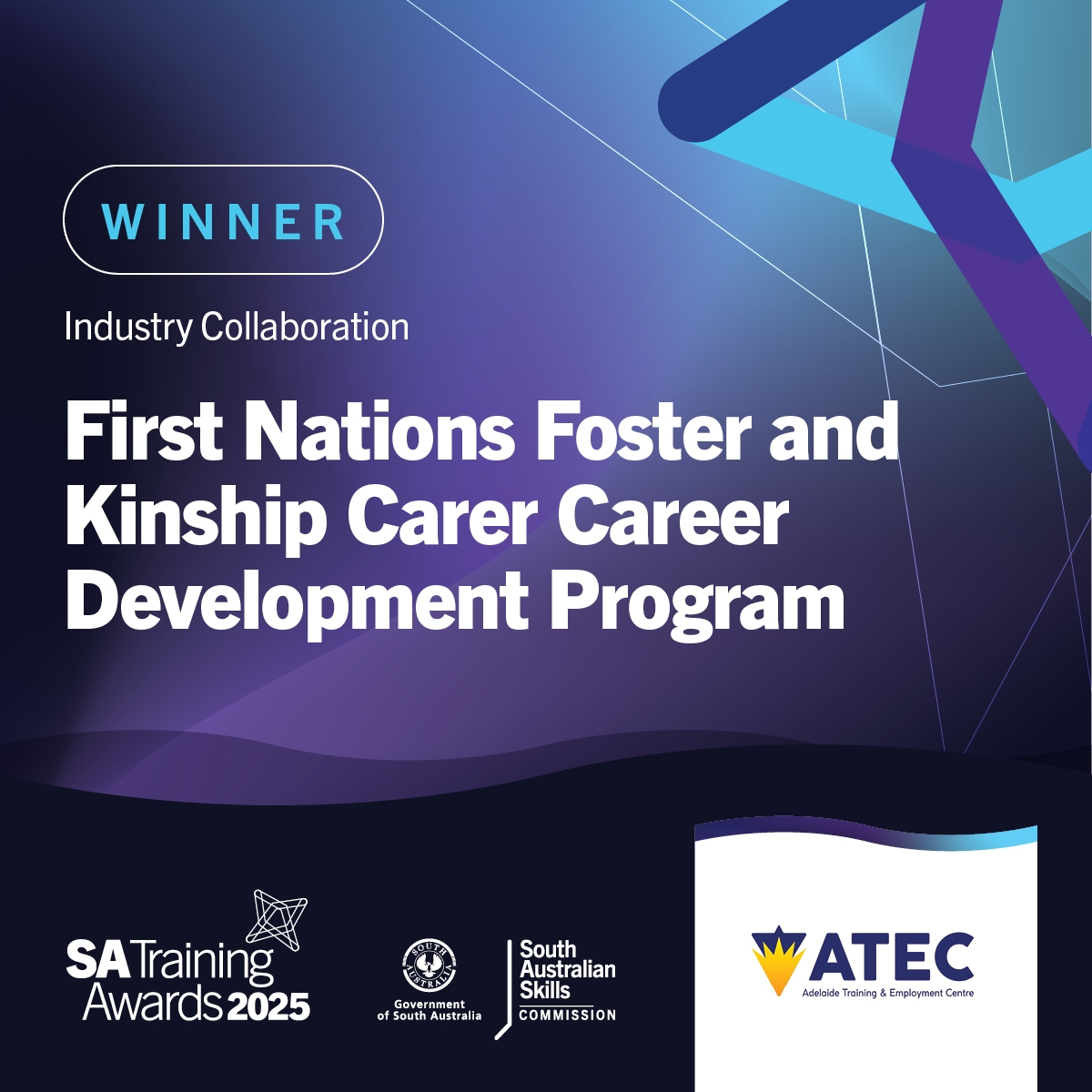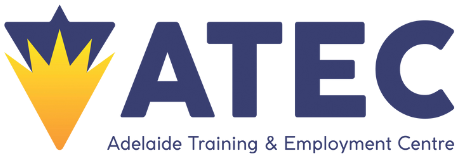
First Nations Foster and Kinship Carer Career Development Program
Industry Collaboration Award
Collaboration Partners
- Aboriginal Family Support Service
- Connecting Foster and Kinship Carers SA
- Department for Child Protection
- Kinship Care Program
- Kornar Winmil Yunti (KWY)
- Martinthi Aboriginal Kinship Service
- Incompro Aboriginal Association
- Uniting Care Wesley Bowden
- The Bradford Institute of Advanced Education
The First Nations Foster and Kinship Carer Career Development Program aims to strengthen the First Nations Child Protection workforce in South Australia. While First Nations People make up only 2.47% of the state’s population, First Nations children represent 34.2% of all children in care, with a 33% increase over the past five years.
This program seeks to increase the number of First Nations professionals in child protection by credentialing volunteer workforces and combining cultural authority with vocational expertise. By empowering First Nations workers to take decision-making roles closer to critical intervention points, it supports culturally respectful and less intrusive interventions.
Through an innovative, culturally safe, and learner-focused training and assessment model, graduates are prepared to enter paid roles and eventually become trainers themselves. This approach ensures workforce sustainability, improves completion rates, and inspires more First Nations students to pursue qualifications, demonstrating that careers in child protection are both visible and achievable.
Industry Collaboration Award
Collaboration Partners
- Aboriginal Family Support Service
- Connecting Foster and Kinship Carers SA
- Department for Child Protection
- Kinship Care Program
- Kornar Winmil Yunti (KWY)
- Martinthi Aboriginal Kinship Service
- Incompro Aboriginal Association
- Uniting Care Wesley Bowden
- The Bradford Institute of Advanced Education
The First Nations Foster and Kinship Carer Career Development Program aims to strengthen the First Nations Child Protection workforce in South Australia. While First Nations People make up only 2.47% of the state’s population, First Nations children represent 34.2% of all children in care, with a 33% increase over the past five years.
This program seeks to increase the number of First Nations professionals in child protection by credentialing volunteer workforces and combining cultural authority with vocational expertise. By empowering First Nations workers to take decision-making roles closer to critical intervention points, it supports culturally respectful and less intrusive interventions.
Through an innovative, culturally safe, and learner-focused training and assessment model, graduates are prepared to enter paid roles and eventually become trainers themselves. This approach ensures workforce sustainability, improves completion rates, and inspires more First Nations students to pursue qualifications, demonstrating that careers in child protection are both visible and achievable.
